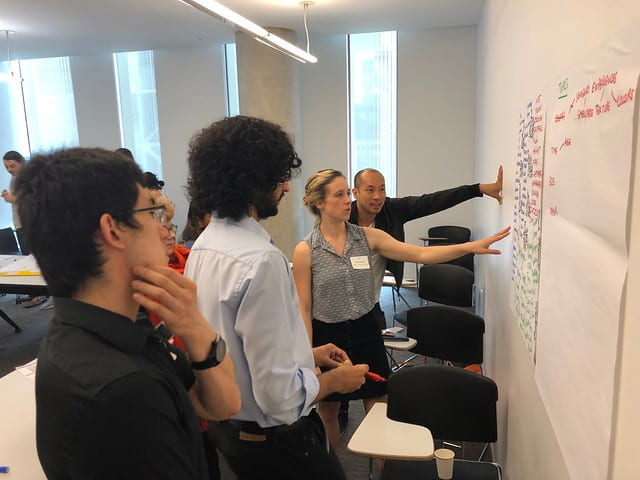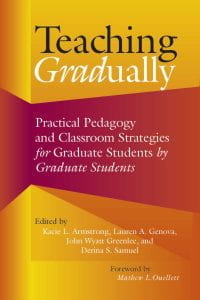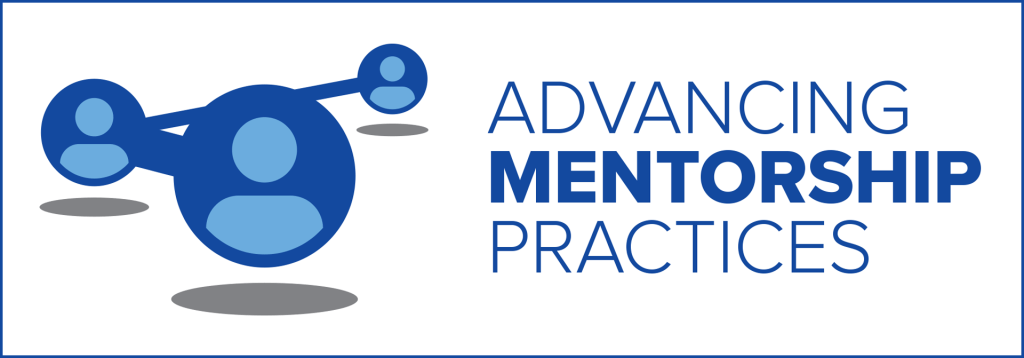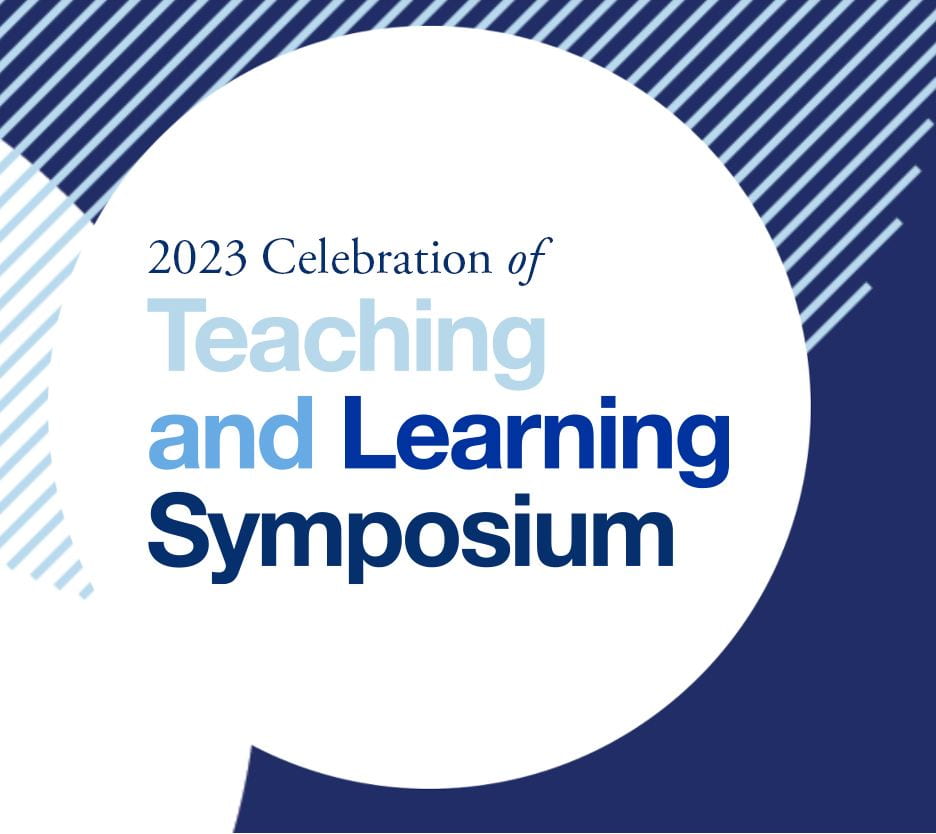This Week for Graduate Students: Innovative Course Design Seminar: Applications Due March 10!
Innovative Course Design Seminar
 In the five-week Innovative Course Design Seminar, participants explore evidence-based, inclusive instructional design practices and create a learner-centered syllabus of their own design. Participants apply the principles of backward design and inclusive teaching to develop context-specific learning objectives, aligned and scaffolded assessments, and a range of engaging activities that facilitate student learning within the context of a single course. Applications are currently being accepted through Friday, March 10.
In the five-week Innovative Course Design Seminar, participants explore evidence-based, inclusive instructional design practices and create a learner-centered syllabus of their own design. Participants apply the principles of backward design and inclusive teaching to develop context-specific learning objectives, aligned and scaffolded assessments, and a range of engaging activities that facilitate student learning within the context of a single course. Applications are currently being accepted through Friday, March 10.
In-person seminar meetings are scheduled for Thursdays March 23, March 30, April 6, April 13, and April 20, 2:40–4:00 PM Eastern Time in Butler 212, supplemented by online modules to be completed between sessions.
For those enrolled in the Teaching Development Program (TDP), this seminar satisfies the Advanced Track seminar requirement.
Journal Club
 Are you interested in learning about educational research? Join us this spring for CTLgrads Journal Club. Every other week we will meet for lively and informal discussion on Tuesday afternoons. This semester we’ll be discussing more chapters from the recently published book Teaching Gradually: Practical Pedagogy for Graduate Students. Many of our discussions will be held with chapter authors. CTLgrads Journal Club sessions are open to Columbia graduate students and postdocs, who are welcome to join us for individual sessions or for the whole series. Participants can join in-person in Butler 204 or online.
Are you interested in learning about educational research? Join us this spring for CTLgrads Journal Club. Every other week we will meet for lively and informal discussion on Tuesday afternoons. This semester we’ll be discussing more chapters from the recently published book Teaching Gradually: Practical Pedagogy for Graduate Students. Many of our discussions will be held with chapter authors. CTLgrads Journal Club sessions are open to Columbia graduate students and postdocs, who are welcome to join us for individual sessions or for the whole series. Participants can join in-person in Butler 204 or online.
Learning by Observing: Effective Teaching Observations
Observing faculty or peers teaching can be a powerful way to expand your awareness of teaching techniques, train your attention on student learning, and generate reflection about your own instructional approaches. But how can you ensure that an observation leads to all these benefits? This workshop will provide participants with a model for conducting online or in-person observations of teaching that focus on learning objectives, student engagement, and insights about the observer’s own teaching development. While the session will be immediately useful to participants completing the Advanced Track of CTL’s Teaching Development Program, it is open to all interested graduate students and postdocs.
Participation in this session counts towards completion of the Teaching Development Program (TDP).
Date: Wednesday, March 8, 2023
Time: 12:00 PM–1:30 PM
Location: Butler Library, Room 212
Making the Most of Mentorship
Columbia graduate students and postdocs are invited to a special interactive workshop, in which participants will learn concrete strategies for identifying and addressing common mentorship challenges, and hear candid perspectives from an interdisciplinary group of mentor-mentee pairs. The session will end by identifying on-campus resources and steps for taking a mentorship relationship to the next level.
This session will offer pertinent guidance and models for current and future mentees and those planning to take on the role of academic mentor during their careers. It is a collaborative offering of the Center for Teaching and Learning, the Office of Postdoctoral Affairs, and the Office of Research Compliance and Training. Light snacks will be available to registered participants.

Date: Thursday, March 23, 2023
Time: 5:30 PM – 7:00 PM
Location: CUIMC Campus, 1202 & 1203 Vagelos Education Center
Participation in this session counts towards completion of the Teaching Development Program (TDP).
2023 Celebration of Teaching and Learning Symposium: March 21 & March 23!
 The Office of the Provost and the Center for Teaching and Learning invite the Columbia community to the 2023 Celebration of Teaching and Learning Symposium to celebrate the ways that faculty and graduate students are transforming their courses and pedagogies.
The Office of the Provost and the Center for Teaching and Learning invite the Columbia community to the 2023 Celebration of Teaching and Learning Symposium to celebrate the ways that faculty and graduate students are transforming their courses and pedagogies.
Join us for an in-person faculty panel and celebratory reception on Tuesday, March 21, and three live online panels on Thursday, March 23, featuring Columbia faculty and graduate students.
Participation in the panel sessions counts towards completion of the Teaching Development Program (TDP).
Upcoming Lead Teaching Fellow Events
The 45 2022-23 Lead Teaching Fellows are running workshops and discussions in departments all around Columbia. These are generally advertised locally. Below are upcoming events that are open to participants beyond the LTFs home departments.
LTF events count towards track completion in the Teaching Development Program.
Inquiry-Based Learning: Teaching Students to Think Like Scientists
How do you teach someone to “think like a scientist?” Inquiry-based learning—which encourages students to form their own research questions and to explore these questions autonomously, using a variety of provided resources—is a straightforward way to introduce students to the research process and to reinforce higher-order thinking. Furthermore, inquiry-based learning in an undergraduate lab setting has been shown to be effective for both STEM and non-STEM students, provided that the assignments are scaffolded carefully. At this workshop, we will facilitate an open discussion on the best practices for implementing inquiry-based assignments in undergraduate astronomy classes. What’s the best way to prepare non-STEM students for inquiry-based assignments and labs? What’s the most effective way to scaffold these assignments? Which data sets, computer-based tools, or other resources might be most appropriate to provide to the students working through inquiry-based labs? This collective brainstorming will encourage attendees to explore inquiry-based learning in their own classrooms, regardless of discipline.
This event is led by Lead Teaching Fellow Ryan Golant (Astronomy). It is open to graduate students in the physical sciences.
Date & Time: Thursday, March 23, 1:30 PM–2:30 PM
Location: Pupin 1402 (the Astronomy library)
Registration: here
Metacognition and Inclusive Learning: How to Think Not, What to Think
“Children must be taught how to think, not what to think.” Margaret Mead’s famous quote about children’s learning raises the question at all levels of education: How can we as teachers teach our students not only specific material, but how to become better learners? Metacognition is the act of thinking about one’s own thinking and learning. In this workshop, we will strive to more fully define metacognition, discuss the various kinds of metacognitive learning, and come up with metacognitive strategies that we can tangibly implement in our classrooms. Further, we will explore how the implementation of metacognitive strategies can lead to a more inclusive learning experience in the classroom. This workshop will not only allow participants to devise strategies to aid in improving students’ ability to learn, but also will allow instructors to reflect on their own course materials and structure, leading to a more effective and inclusive classroom experience.
This event is led by Lead Teaching Fellow Jilian Pizzi (Italian). It is open to all graduate students.
Date & Time: Tuesday, March 28, 11:30 AM–1:00 PM
Location: 208b Butler Library (the Butler Studio)
Registration: email jap2247@columbia.edu
Using Rubrics to Assess Philosophical Writing
Grading written work can feel very subjective. This can make the grading process difficult for TAs, who may have a hard time assigning letter grades in a principled way, but is also challenging for students, who may feel in the dark about how their grades are being assigned. One way of making the grading process more transparent, and thus more pleasant for TAs and students, is by designing and adopting a rubric.
This workshop will have two parts. First, we’ll have a general discussion about rubrics: what they are, how they are meant to be used, and how they can benefit both TAs and students. The second part of the workshop will be a collaborative activity. As a group, we will design a rubric template that can be modified to suit the various forms of philosophical writing that TAs will encounter.
This event is led by Lead Teaching Fellow Samara Burns (Philosophy). It is open to graduate students in the humanities.
Date & Time: Tuesday March 28, 4:10 PM–6:00 PM
Location: 716 Philosophy Hall
Registration: email sb4318@columbia.edu
Consultations & Office Hours
Consultations
The CTL provides graduate students and postdocs with consultations at all points in their teaching career. These include consultations on teaching statements, professional development, preparing for the job market, teaching online, and general teaching-related support. Request a consultation.
Office Hours
Live office hours for graduate students are being held each Friday from 2:00 PM–4:00 PM ET. Current Columbia graduate students seeking guidance on teaching approaches and tactics, preparing materials for teaching portfolios, or completing tracks in the Teaching Development Program are invited to drop in, no appointment necessary – in-person in 212 Butler or online via Zoom. Please contact CTLgrads@columbia.edu for the Zoom link.